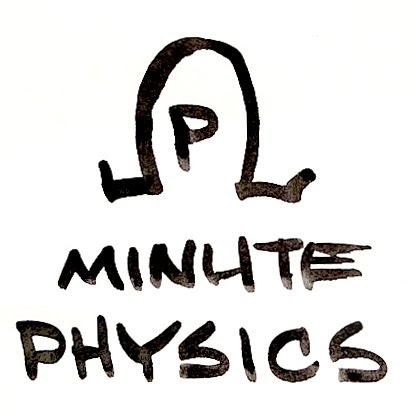2016-07-19
[public] 2.64M views, 56.1K likes, 893 dislikes audio only
2560×1440Listen to "The Paradox of Choice" for free at http://www.Audible.com/minutephysics
This video is about the orbital mechanics of why it’s so hard to crash into the sun – the energy it takes to get there is astoundingly high, compared with leaving the solar system.
Thanks to everyone who supports MinutePhysics on Patreon! http://www.patreon.com/minutephysics
Link to Patreon supporters here: http://www.minutephysics.com/supporters.html
Music by Nathaniel Schroeder, http://www.soundcloud.com/drschroeder
REFERENCES
International Atomic Energy Association report on nuclear waste storage:
http://www-pub.iaea.org/MTCD/publications/PDF/LTS-RW_web.pdf
And Slate’s article on actual potential solutions to nuclear waste: http://www.slate.com/articles/health_and_science/green_room/2009/11/atomic_priesthoods_thorn_landscapes_and_munchian_pictograms.html
Info about sun dive delta v from low earth orbit
Oberth effect
https://en.m.wikipedia.org/wiki/Oberth_effect
More on rocket burns
http://ntrs.nasa.gov/archive/nasa/casi.ntrs.nasa.gov/20100033146.pdf
Sun dive probe
Other plans (jupiter assists) vs repeat Venus assist:
http://solarprobe.gsfc.nasa.gov/spp_mission.htm
Solar Probe Plus technical paper:
http://issfd.org/ISSFD_2014/ISSFD24_Paper_S6-2_Guo.pdf
Mercury Messenger Trajectory: https://en.wikipedia.org/wiki/MESSENGER#/media/File:MESSENGER_trajectory.svg
Online calculator for orbital velocities, escape velocities, etc:
http://keisan.casio.com/exec/system/1360310353
Effective potential (possibly with interactive mathematica notebook?):
http://physics.oregonstate.edu/portfolioswiki/doku.php?id=activities:main&file=cfeffpotential
https://en.m.wikipedia.org/wiki/Effective_potential
https://www.phy.duke.edu/~rgb/Class/phy51/phy51/node8.html
Equations for elliptical orbit speeds, etc:
https://en.m.wikipedia.org/wiki/Apsis
MinutePhysics is on Google+ - http://bit.ly/qzEwc6
And facebook - http://facebook.com/minutephysics
And twitter - @minutephysics
Minute Physics provides an energetic and entertaining view of old and new problems in physics -- all in a minute!
Created by Henry Reich
/youtube/video/YHS9g72npqA
http://www.patreon.com/minutephysics

